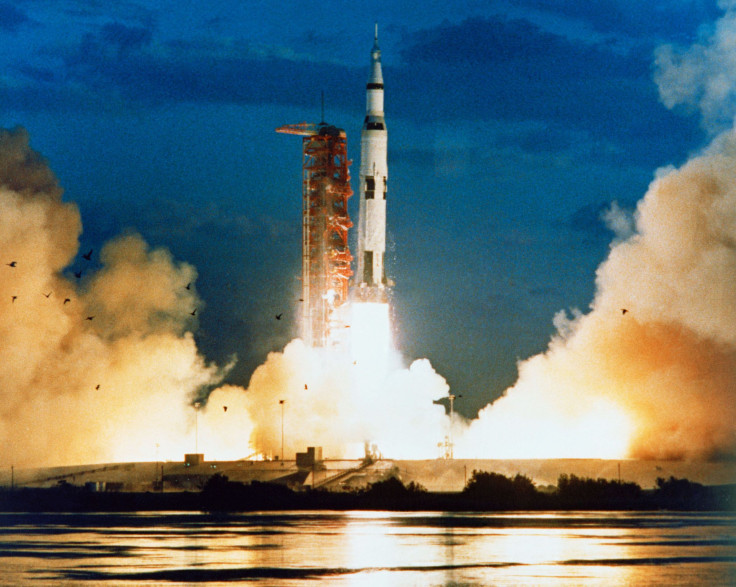Myth Busted: NASA's Saturn V Rocket's Noise Didn't Melt Concrete
KEY POINTS
- Some internet users claim that the Saturn V's noise melted concrete
- Researchers had a closer look at Saturn V's acoustics
- They found that it was certainly loud, but not enough to melt concrete
Was NASA's Saturn V rocket so loud that it ended up melting concrete? Researchers are now busting this myth.
The Saturn V is an important piece of one of humanity's greatest feats. It was built to take people to the Moon and was used for the Apollo missions during the 1960s and 70s.
Today, it "remains the most powerful rocket to successfully launch to orbit," the American Institute of Physics (AIP) noted in a news release.
Naturally, this gives Saturn V a rather prominent place in history. However, its status might have also been the center of a certain internet myth stating it "produced enough sound to melt concrete nearby and set grass aflame a mile away."
Indeed, the Saturn V was powerful and even noisy. One can see the sheer force of the Saturn V in the video below by the Smithsonian Channel, which described it as "literally breathtaking."
But is it concrete-melting noisy?
In the new paper, published in The Journal of the Acoustical Society of America (JASA) and titled "Saturn V sound levels: A letter to the Redditor," researchers delved into the acoustics of the historic rocket to shed some light on this internet claim.
According to the researchers, Saturn V reached 203 decibels. By comparison, even booming jet engines reach 120 to160 decibels—levels that may already cause pain and ear injury according to the U.S. Centers for Disease Control and Prevention.
While this meant that the Saturn V was definitely incredibly loud, however, it does not mean that it was enough to melt concrete or cause grass fires, noted the AIP. If these things did occur, then it wasn't the noise that caused it but likely the "radiative heating."
"The Saturn V is a monument to one of mankind's greatest achievements: the human Moon landings," the authors wrote. "However, online claims about this vehicle's impressive acoustics by well-meaning individuals are often based on misunderstood or incorrect data."
"The Saturn V has taken on this sort of legendary, apocryphal status," one of the authors, Kent L. Gee of Brigham Young University, said as per the AIP news release. "We felt that, as part of the JASA special issue on Education in Acoustics, it was an opportunity to correct misinformation about this vehicle."
With the myth put to rest, many are now eagerly waiting for the upcoming Artemis 1 launch, which will set the stage for humanity's return to the Moon and eventual travel to Mars.
This first flight mission will test the Orion Spacecraft as well as the new Space Launch System (SLS) rocket. According to NASA, the SLS will exert "more power than any rocket ever," thus surpassing the legendary Saturn V.

© Copyright IBTimes 2024. All rights reserved.






















